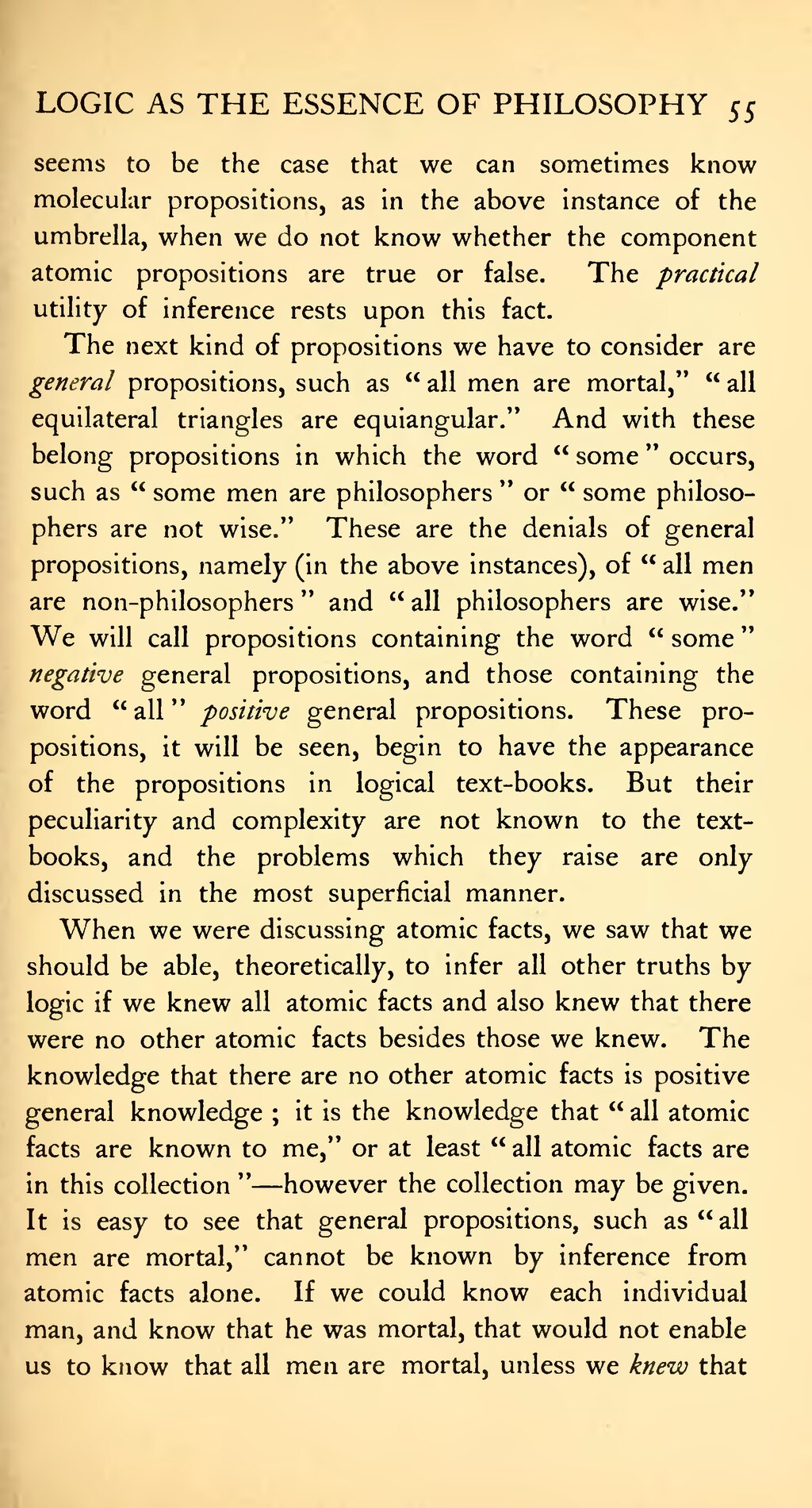seems to be the case that we can sometimes know molecular propositions, as in the above instance of the umbrella, when we do not know whether the component atomic propositions are true or false. The practical utility of inference rests upon this fact.
The next kind of propositions we have to consider are general propositions, such as “all men are mortal,” “all equilateral triangles are equiangular.” And with these belong propositions in which the word “some” occurs, such as “some men are philosophers” or “some philosophers are not wise.” These are the denials of general propositions, namely (in the above instances), of “all men are non-philosophers” and “all philosophers are wise.” We will call propositions containing the word “some” negative general propositions, and those containing the word “all” positive general propositions. These propositions, it will be seen, begin to have the appearance of the propositions in logical text-books. But their peculiarity and complexity are not known to the textbooks, and the problems which they raise are only discussed in the most superficial manner.
When we were discussing atomic facts, we saw that we should be able, theoretically, to infer all other truths by logic if we knew all atomic facts and also knew that there were no other atomic facts besides those we knew. The knowledge that there are no other atomic facts is positive general knowledge; it is the knowledge that “all atomic facts are known to me,” or at least “all atomic facts are in this collection”—however the collection may be given. It is easy to see that general propositions, such as “all men are mortal,” cannot be known by inference from atomic facts alone. If we could know each individual man, and know that he was mortal, that would not enable us to know that all men are mortal, unless we knew that
